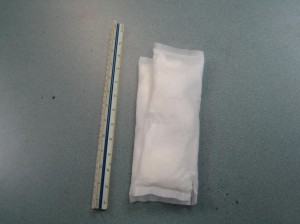Las Vegas CPR is a provider of CPR training programs in Las Vegas, Nevada. It is one of the best training locations in the country because of quality training available at very affordable training fees. Other providers may offer the same quality but charge higher rates for training. Not Las Vegas CPR! Programs are available all through the week, sometimes during weekends if there are many trainees signing up for a particular program.
Signing up can be done on the Las Vegas CPR website, where there is an online application form. E-mails can telephone calls can be used to sign up as well. Enrolment in person is highly recommended because of personal details like signatures and payment need to be completed in person.
CPR training credentials
The reason why a lot of trainees get trained with Las Vegas CPR is for the certification. Healthcare providers are often required by their workplaces to have basic CPR training credentials, and even advanced CPR training credentials for healthcare professionals. All of the classes at Las Vegas CPR are certification programs. Trainees receive their credentials once they pass the set of exams given at the end of a program.
Training credentials are valid for two years, the same with all other providers in the country and according to the guidelines from the American Heart Association. They can be renewed through re-certification classes, only if they are still valid. Expired certificates are not qualified for renewal.
CPR programs
Basic Life Support

Basic Life Support programs teach trainees how to perform basic CPR skills in compressions, rescue breaths, and defibrillation. Because the BLS programs are generally shorter than ALS programs, they focus on skill building. Trainees practice learned skills on high-end training equipment, such as training mannequins and AEDs. First aid is also part of the BLS programs, usually focused on managing circulatory and respiratory emergencies like bleeding and choking.
- Heartsaver CPR/AED – general public course, runs for 4 hours; teaches 1-person basic CPR, first aid, and AED. Certification is optional.
- Heartsaver CPR/AED (C) – healthcare provider course, runs for 4.5 hours; teaches the same curriculum as the general public course but tailors lessons for HCPs
- Basic Life Support for HCPs – runs for 4.5 hours; teaches both 1 and 2-person CPR, first aid, and the 2010 BLS guidelines. Re-certification is 4 hours.
Advanced Life Support classes are only for HCPs. Students are required to have BLS for HCP training certificates in order to qualify for ALS classes. ALS programs also teach basic CPR, but how to give them in a clinical setting such as a hospital. Medical management with equipment, diagnostics, and medication is part of ALS classes. Trainees learn how to use bag valve masks, ET tubes, and ECGs. Pharmacology for adults and pediatric patients are very different from one another as well.
- Advanced Cardiac Life Support – 16 hours total over 2 days; for adult victims. Re-certification is 5 to 6 hours.
- Pediatric Advanced Life Support – 14 hours total over 2 days; for pediatric victims. Re-certification is 6 to 8 hours.
